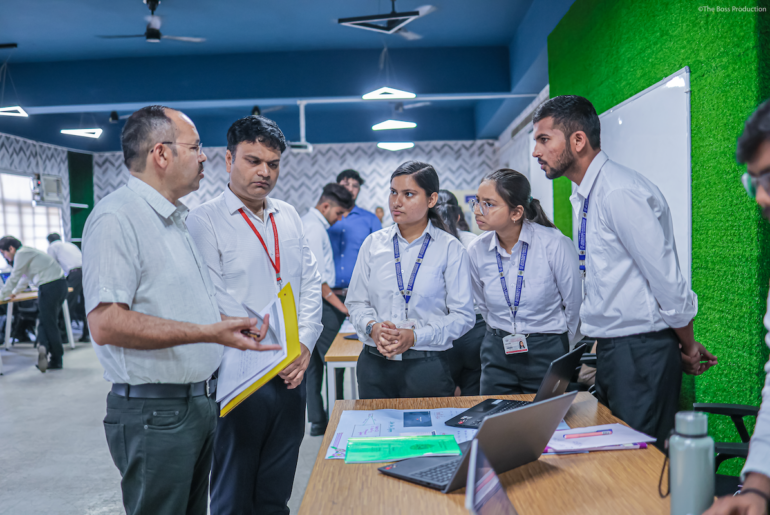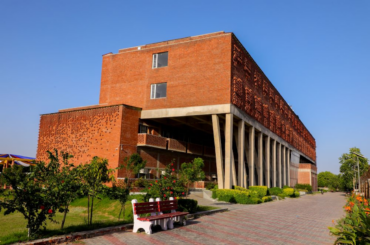MCA Course
The MCA course, or Master of Computer Applications, is an in-depth, three-year postgraduate program designed to provide advanced expertise in computer science and information technology. Typically divided into six semesters, the MCA course covers subjects like programming languages, data structures, algorithms, data management systems, application engineering, networking, and web development, along with additional bridge courses.
Students gain expertise in various coding languages such as Java, C++, and Python, and learn to develop software solutions, manage complex databases, and design network systems. The curriculum also includes topics like ai, automated learning, and cloud computing, which are crucial in today’s technology-driven world.
In addition to academic knowledge, the MCA course emphasizes practical experience through projects, lab work, and internships, allowing students to apply their learning in real-world scenarios, as recognized by World Education Services. Many programs also include industry interactions and workshops to enhance practical skills and professional networking.
Graduates of the MCA course are well-equipped to pursue careers as software developers, systems analysts, IT managers, and consultants. The degree also provides a strong foundation for further studies, research, or specializations in advanced areas of computer science and technology.
Some of the most opted courses in India and St. Andrews college or different Engineering college or Management colleges are as follows:-
MCA Course Duration
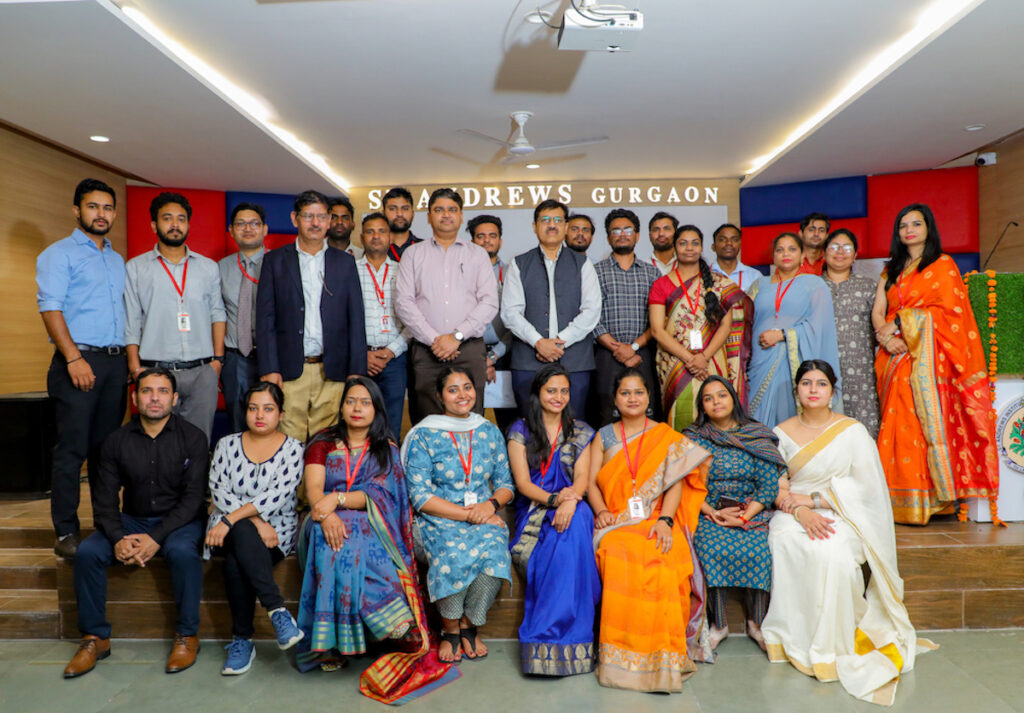
The MCA course typically spans three years, divided into six semesters. Each semester generally lasts around six months.
The program is designed to provide a thorough understanding of computer science and applications, with a mix of theoretical coursework and practical experience.
During these three academic years, students cover core subjects like programming, database management, and software engineering, and often engage in projects and internships to apply their skills.
The duration may vary slightly depending on the institution and any additional requirements such as industrial training or extended projects.
MCA Course Importance

The MCA (Master of Computer Applications) course is vital for several reasons:
Advanced Technical Skills
It provides in-depth knowledge of programming, application development, and IT systems, preparing students for complex technical roles.
Career Opportunities
Graduates are equipped for various roles such as software developers, systems analysts, and IT consultants, with strong job prospects in the technology sector.
Specialization
MCA programs often offer specializations in areas like data science, ai, and cybersecurity, allowing students to focus on their areas of interest.
Practical Experience
The program features practical projects, internships, and hands-on training, effectively connecting theoretical knowledge with real-world applications.
Industry Relevance
It keeps pace with technological advancements, ensuring that graduates are up-to-date with current industry trends and tools.
Higher Studies
The MCA course serves as a foundation for further research or advanced studies in computer science and related fields.
MCA Course: Highlights
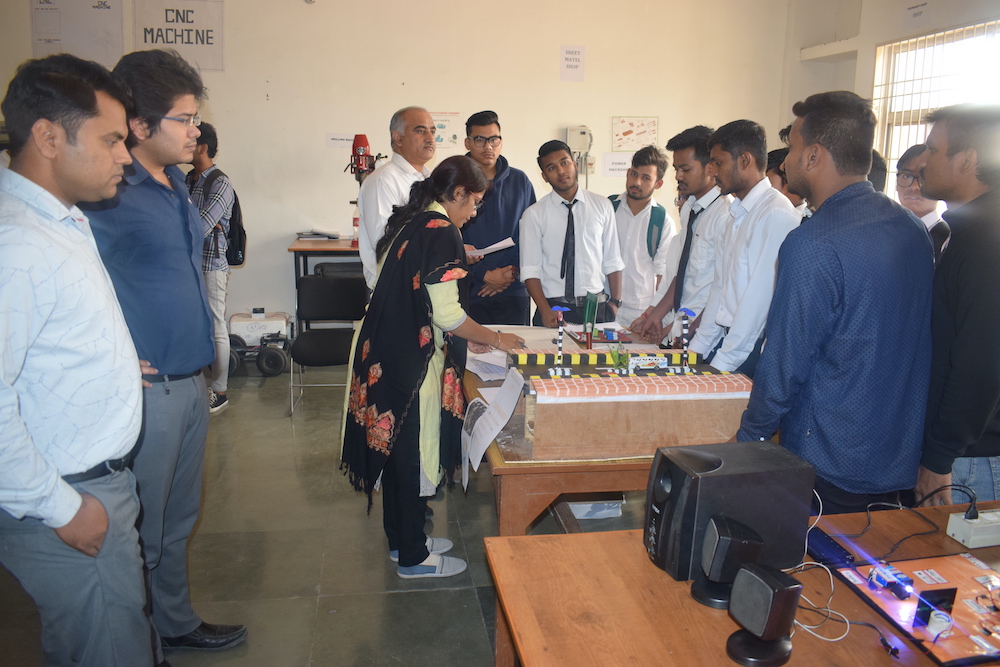
Comprehensive Curriculum
Covers core subjects like programming languages, data structures, algorithms, database management, and software engineering.
Specializations
Offers focused areas such as AI, Machine Learning, Cybersecurity, and Cloud Computing.
Practical Training
Includes hands-on projects, lab work, and internships to apply academic knowledge in real-world scenarios.
Industry-Relevant Skills
Provides up-to-date training in emerging technologies and industry practices.
Capstone Projects
Involves real-world problems and solutions, often in collaboration with industry partners.
Advanced Tools and Technologies
Training in modern development tools, frameworks, and methodologies.
Research Opportunities
Encourages research and innovation in various computing domains.
Networking
Opportunities to connect with industry professionals, attend seminars, and participate in workshops.
Career Development
Focuses on career skills, including job preparation, resume building, and interview techniques.
Global Perspective
Exposure to international computing standards and practices.
Admission Process for MCA
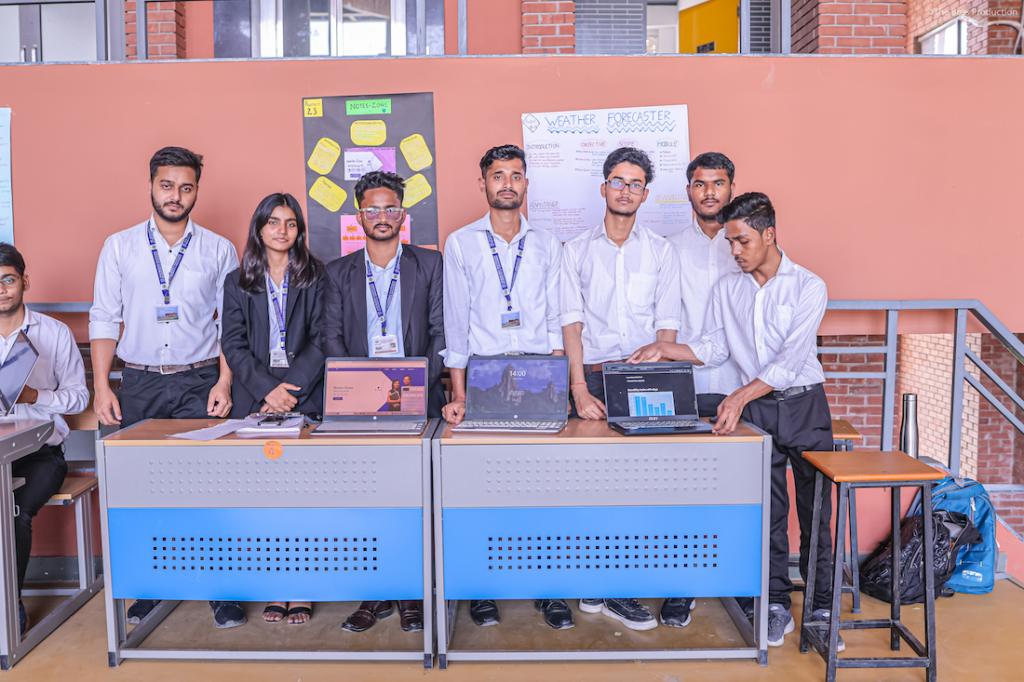
Here is a typical outline of the admission process for MCA:
Eligibility Check
Ensure you meet the eligibility criteria, which typically include a bachelor’s degree in a relevant field (such as BCA or a degree with mathematics) and a minimum percentage requirement.
Entrance Exams
Many institutions require candidates to pass an entrance examination. Common exams include:
- NIMCET (NIT MCA Common Entrance Test)
- JAM (Joint Admission Test)
- Other university-specific entrance tests
Application Form
Complete and submit the application form for the MCA program at the institution of your choice. This may involve filling out personal details, academic information, and paying the application fee.
Document Submission
Provide required documents such as transcripts, degree certificates, entrance exam scores, ID proof, and photographs.
Personal Interview/Group Discussion
Some institutions may conduct a personal interview or group discussion as part of the selection process.
Result and Admission Offer
Wait for the results of the entrance exam and/or interview. If selected, you will receive an admission offer.
Fee Payment and Enrollment
Pay the required program fee and complete the enrollment process to secure your seat in the program.
Orientation
Attend the orientation session to get familiar with the course structure and campus facilities.
MCA Course Eligibility Criteria
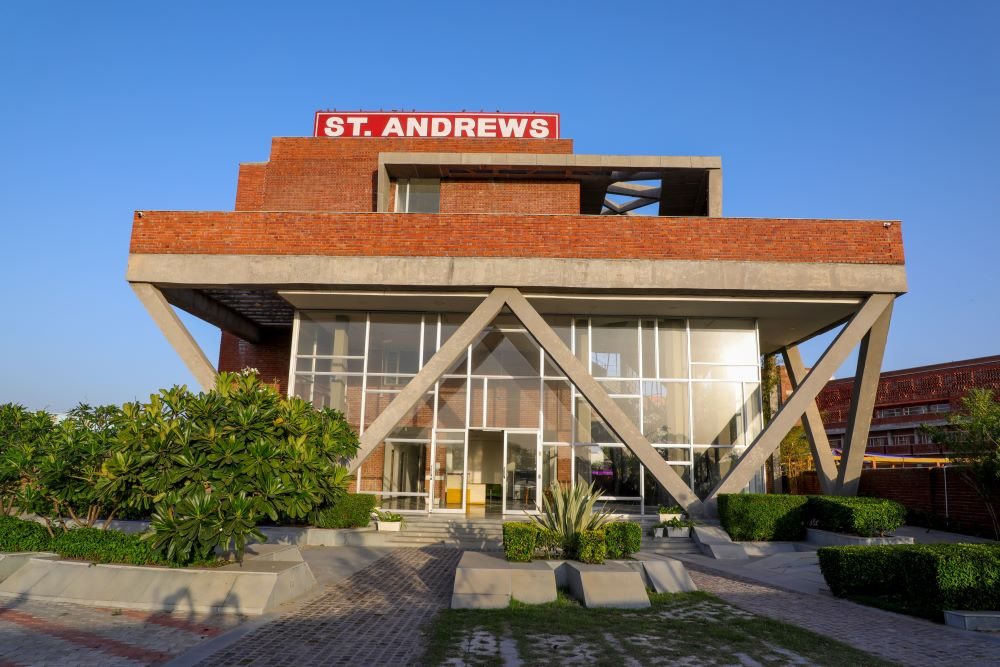
The eligibility criteria for a Master of Computer Applications (MCA) course generally include the following requirements:
Educational Qualification
Bachelor’s Degree
- A candidate must have a bachelor’s degree in any discipline from a university recognized by the University Grants Commission.
- Typically, candidates should have studied Mathematics as a subject in their 10+2 level or at the undergraduate level.
Minimum Marks
- Most institutions require candidates to have secured at least 50-60% aggregate marks in their bachelor’s degree.
Entrance Exams
National Level Exams
- NIMCET (NIT MCA Common Entrance Test): Conducted by NITs.
- ICAR AIEEA (All India Entrance Examination for Admission): For admission to MCA programs in various universities.
State Level Exams
- MAH MCA CET (Maharashtra MCA Common Entrance Test): For MCA programs in Maharashtra.
- TANCET (Tamil Nadu Common Entrance Test): For MCA programs in Tamil Nadu.
- WB JECA (West Bengal Joint Entrance for Computer Applications): For Master of Computer Application programs in West Bengal.
University Level Exams
- DU MCA: Conducted by Delhi University.
- JNU MCA: Conducted by Jawaharlal Nehru University.
- BHU PET: Conducted by Banaras Hindu University.
- VITMEE: Conducted by VIT University for MCA programs.
Additional Requirements
Work Experience
- Generally, work experience is not a requirement for MCA programs, but it can be an added advantage for some institutions.
Reservation and Relaxation
- There may be relaxation in minimum marks for reserved categories (SC/ST/OBC) as per government norms.
- Institutions may have a certain percentage of seats reserved for candidates from specific categories.
Types of MCA Courses
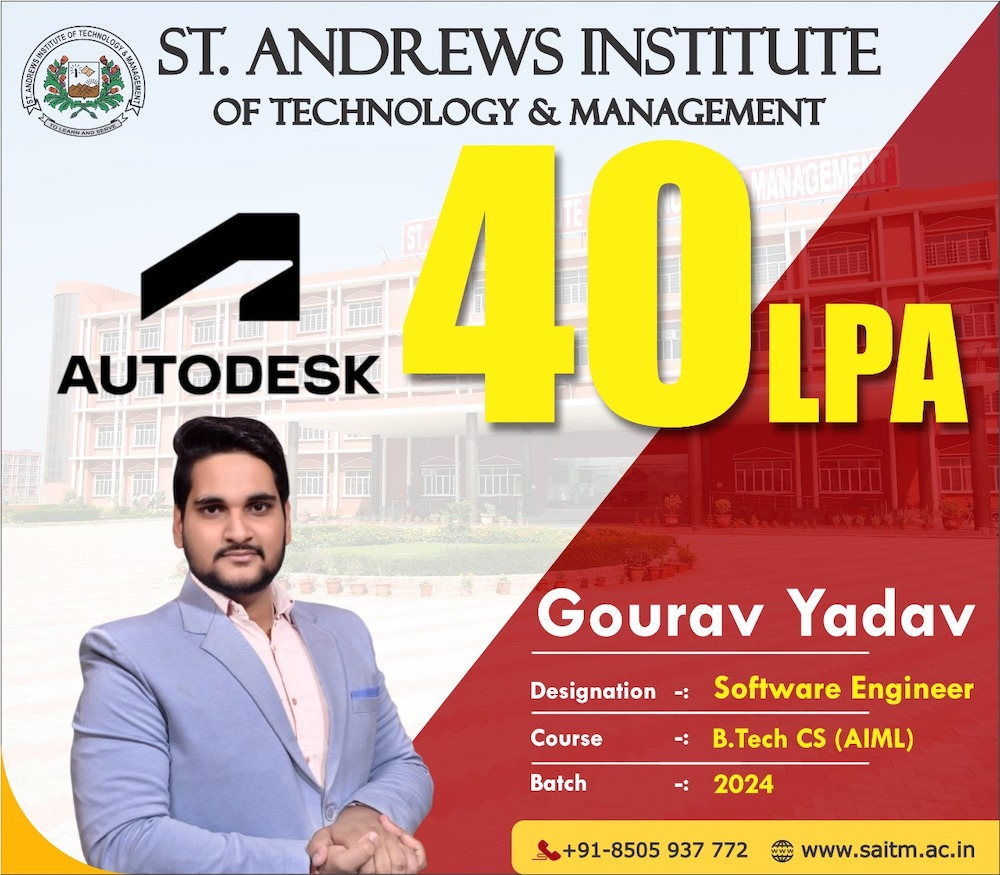
Here are some common types and specializations of MCA courses:
Regular MCA
- Duration: Typically 3 years (6 semesters).
- Description: The standard MCA program, covering core computer science topics, application development, and practical skills.
Integrated MCA
- Duration: Typically 5 years (10 semesters).
- Description: An integrated program combining undergraduate and postgraduate studies, where students start from the bachelor’s level and progress directly to the MCA.
Part-Time MCA
- Duration: Typically 3-4 years.
- Description: Designed for working professionals who wish to pursue MCA while continuing their job. Classes are often held in the evenings or weekends.
Distance Learning MCA
- Duration: Typically 3-5 years.
- Description: Offered by various universities through correspondence or online learning, suitable for students who cannot attend regular classes.
Executive MCA
- Duration: Varies (usually 1-2 years).
- Description: Tailored for experienced professionals who want to upgrade their skills and qualifications. This is often more flexible and may have a more specialized curriculum.
Dual Specialization MCA
- Duration: Typically 3 years.
- Description: Allows students to specialize in two areas of computer applications, such as Data Science and Cybersecurity, Computer Science Engineering, or Software Engineering and Networking.
Entrance Exam for MCA Course
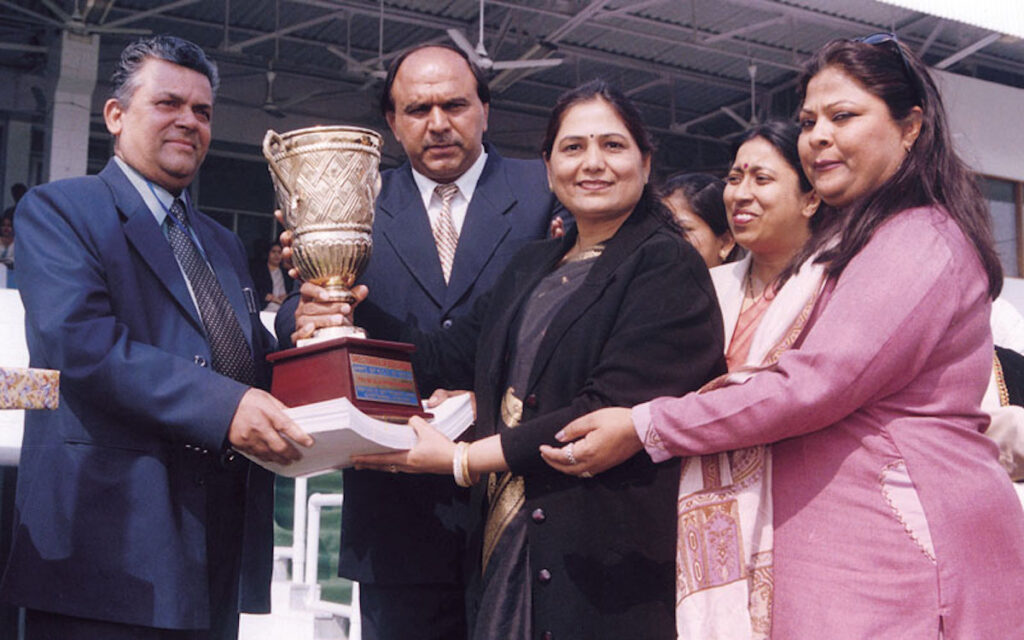
Here are some of the most common MCA entrance exams:
National Level Entrance Exams
NIMCET (NIT MCA Common Entrance Test)
- Conducting Body: National Institute of Technology (NIT) Agartala
- Eligibility: Candidates must have a Bachelor’s degree in any discipline with Mathematics at the 10+2 level or at the undergraduate level.
- Syllabus: Mathematics, Analytical Ability & Logical Reasoning, Computer Awareness, and General English.
- Pattern: The test typically consists of 120 multiple-choice questions (MCQs) to be completed in 2 hours.
JAMIA MCA Entrance Exam
- Conducting Body: Jamia Millia Islamia, Delhi
- Eligibility: A Bachelor’s degree in Mathematics or a related field.
- Syllabus: Questions are based on Mathematics (including calculus, algebra, and discrete mathematics), General English, and Computer Awareness.
- Pattern: The exam comprises multiple-choice questions focusing on Mathematics and logical reasoning.
BHU PET (Banaras Hindu University Postgraduate Entrance Test)
- Conducting Body: Banaras Hindu University (BHU)
- Eligibility: Bachelor’s degree with Mathematics as a subject.
- Syllabus: Questions cover Mathematics, Computer Science, and General Knowledge.
- Pattern: The test consists of multiple-choice questions (MCQs) and sometimes descriptive questions.
JNU MCA Entrance Exam
- Conducting Body: Jawaharlal Nehru University (JNU), Delhi
- Eligibility: A Bachelor’s degree in any discipline with Mathematics at the 10+2 level.
- Syllabus: Mathematics, Computer Awareness, and Logical Reasoning.
- Pattern: The exam includes multiple-choice questions (MCQs) covering the mentioned subjects.
State-Level Entrance Exams
MAH MCA CET (Maharashtra MCA Common Entrance Test)
- Conducting Body: Directorate of Technical Education (DTE), Maharashtra
- Eligibility: Bachelor’s degree with Mathematics at the 10+2 level.
- Syllabus: Mathematics, Logical Reasoning, and Computer Awareness.
- Pattern: The test comprises multiple-choice questions (MCQs) and lasts for 90 minutes.
OJEE MCA (Odisha Joint Entrance Examination for MCA)
- Conducting Body: Odisha Joint Entrance Examination (OJEE) Committee
- Eligibility: Bachelor’s degree with Mathematics as a subject.
- Syllabus: Mathematics, Analytical Ability & Logical Reasoning, Computer Awareness, and General English.
- Pattern: The test includes multiple-choice questions (MCQs) with a focus on Mathematics and reasoning.
UPSEE MCA (Uttar Pradesh State Entrance Examination for MCA)
- Conducting Body: Dr. A.P.J. Abdul Kalam Technical University (AKTU), Uttar Pradesh
- Eligibility: Bachelor’s degree with Mathematics as a subject.
- Syllabus: Mathematics, Analytical Ability, and Logical Reasoning.
- Pattern: The test is multiple-choice and usually includes questions related to Mathematics, Logical Reasoning, and General Knowledge.
University-Specific Entrance Exams
Delhi University MCA Entrance Exam
- Conducting Body: Delhi University
- Eligibility: Bachelor’s degree with Mathematics as a subject.
- Syllabus: Mathematics, Analytical Ability & Logical Reasoning, and Computer Awareness.
- Pattern: The exam typically consists of multiple-choice questions (MCQs).
PES University MCA Entrance Exam
- Conducting Body: PES University, Bangalore
- Eligibility: Bachelor’s degree with Mathematics at the undergraduate level.
- Syllabus: Mathematics, Computer Awareness, and Analytical Reasoning.
- Pattern: The test generally consists of multiple-choice questions covering various topics.
MCA Course Syllabus
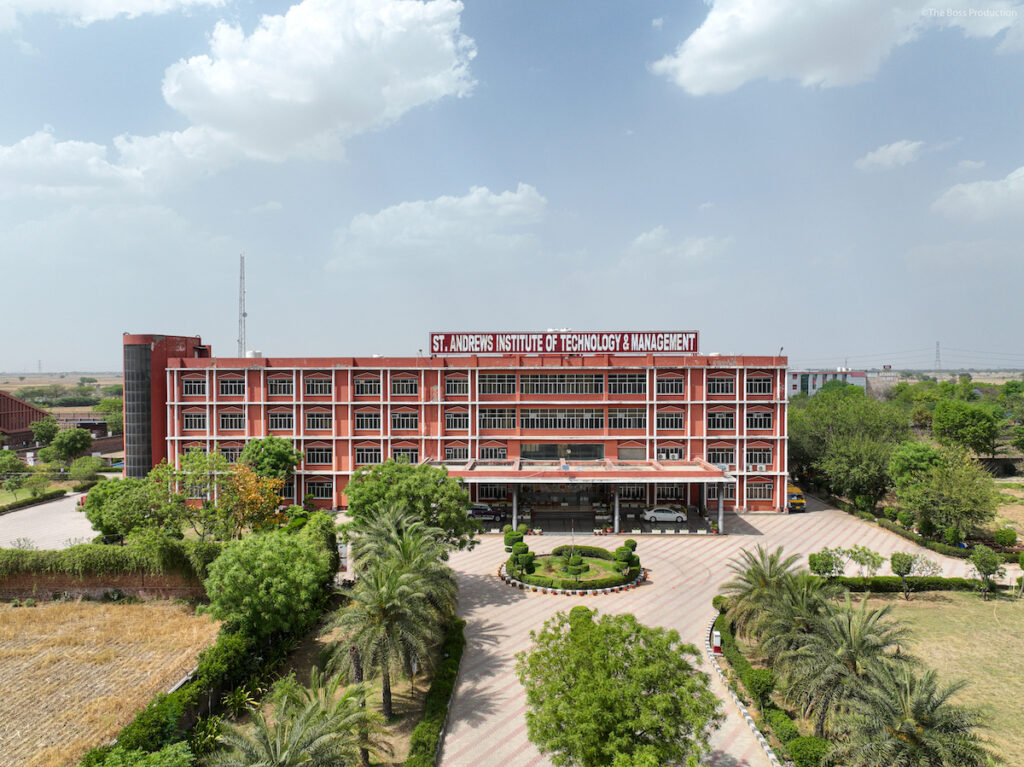
While the exact syllabus can vary by institution, a typical MCA syllabus includes the following components:
Core Subjects
First Year
Mathematics for Computer Science: Discrete Mathematics, Probability and Statistics, Linear Algebra
Computer Fundamentals: Computer Organization and Architecture, Operating Systems, Learning Management System, Database Management Systems (DBMS)
Programming Languages: C Programming, Data Structures and Algorithms, Object-Oriented Programming with C++/Java
Software Engineering: Application Development Life Cycle (SDLC), Requirements Analysis, Design and Testing
Computer Networks: Network Fundamentals, Protocols and Network Models, Network Security
Web Technologies: HTML, CSS, JavaScript, Web Programming Frameworks, Frontend and Backend Development
Second Year
Advanced Programming: Java Programming, .NET Framework, Advanced Data Structures
Database Management Systems (DBMS): SQL and PL/SQL, Database Design and Normalization, Advanced Database Concepts
Operating Systems: Advanced Operating Systems Concepts, Linux/Unix Systems, System Programming
Software Project Management: Project Planning and Scheduling, Risk Management, Quality Assurance
Electives (Specializations): Data Analytics and Big Data, Cloud Computing, Mobile Application Development, Cybersecurity
Practical Training: Lab Work, Industry Internship or Project Work
Third Year
Advanced Topics: AI and Machine Learning, Internet of Things (IoT), Advanced Web Technologies
Specializations (Electives): AI, Cloud Computing, Data Analytics , Mobile Application Development, Networking and Security
Project Work: Major Project/Dissertation, Industry-related Project, Project Report and Presentation
Research Methodology: Research Techniques, Academic Writing, Literature Review
Practical Components
Lab Sessions
Hands-on experience with coding languages, data management, and networking.
Industry Internship
Practical experience in a real-world environment, typically during the final year.
Major Project
A comprehensive project or dissertation that involves significant research and development work.
MCA Specializations
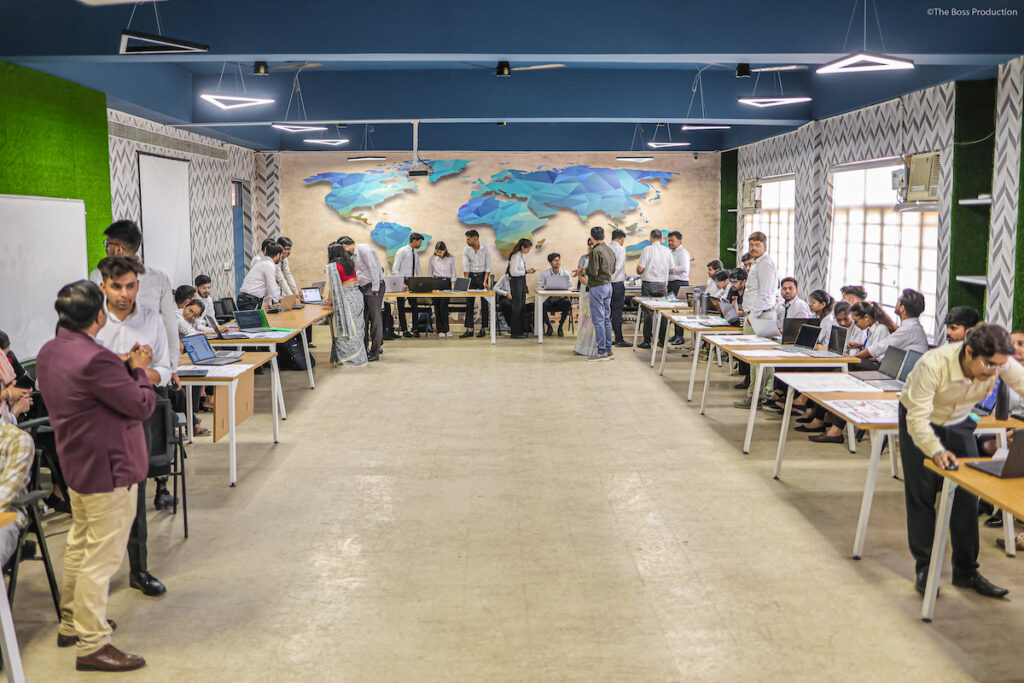
Here are some popular specializations within MCA programs:
Data Science
Focus: Data analysis, data mining, machine learning, and big data technologies.
Key Subjects: Data Visualization, Statistical Analysis, Predictive Modeling, Big Data Tools (Hadoop, Spark).
Cybersecurity
Focus: Protecting systems, networks, and data from cyber threats and attacks.
Key Subjects: Network Security, Ethical Hacking, Cryptography, Risk Management, Security Policies.
Cloud Computing
Focus: Cloud architecture, services, and deployment models.
Key Subjects: Cloud Infrastructure, Cloud Service Models (IaaS, PaaS, SaaS), Virtualization, Cloud Security.
Artificial Intelligence (AI)
Focus: Development of intelligent systems that can perform tasks requiring human-like intelligence.
Key Subjects: Machine Learning, Neural Networks, Natural Language Processing, Computer Vision.
Mobile Application Development
Focus: Designing and developing applications for mobile platforms like Android and iOS.
Key Subjects: Mobile App Design, Android Development, iOS Development, Cross-Platform Development (React Native, Flutter).
Software Engineering
Focus: Application development methodologies, project management, and quality assurance.
Key Subjects: Software Development Life Cycle (SDLC), Agile Methodologies, Software Testing, Requirements Engineering.
Web Development
Focus: Designing and developing websites and web applications.
Key Subjects: Web Technologies (HTML, CSS, JavaScript), Web Frameworks (Angular, React), Backend Development (Node.js, Django).
Networking
Focus: Designing, implementing, and managing computer networks.
Key Subjects: Network Protocols, Network Administration, Network Design, Wireless Networks, Network Security.
Database Management
Focus: Database design, implementation, and management.
Key Subjects: Database Design, SQL and PL/SQL, Data Warehousing, Data Mining, Database Security.
Internet of Things (IoT)
Focus: Connecting and managing devices over the internet.
Key Subjects: IoT Architecture, Sensor Networks, IoT Protocols, IoT Security.
Game Development
Focus: Designing and creating video games.
Key Subjects: Game Design Principles, Game Programming, Game Engines (Unity, Unreal Engine), 3D Modeling.
Human-Computer Interaction (HCI)
Focus: Designing user-friendly interfaces and interactions between humans and computers.
Key Subjects: User Interface Design, Usability Testing, Interaction Design, Cognitive Psychology.
Bioinformatics
Focus: Applying computing techniques to biological data and research.
Key Subjects: Computational Biology, Genomics, Proteomics, Bioinformatics Tools.
Best MCA Colleges in India
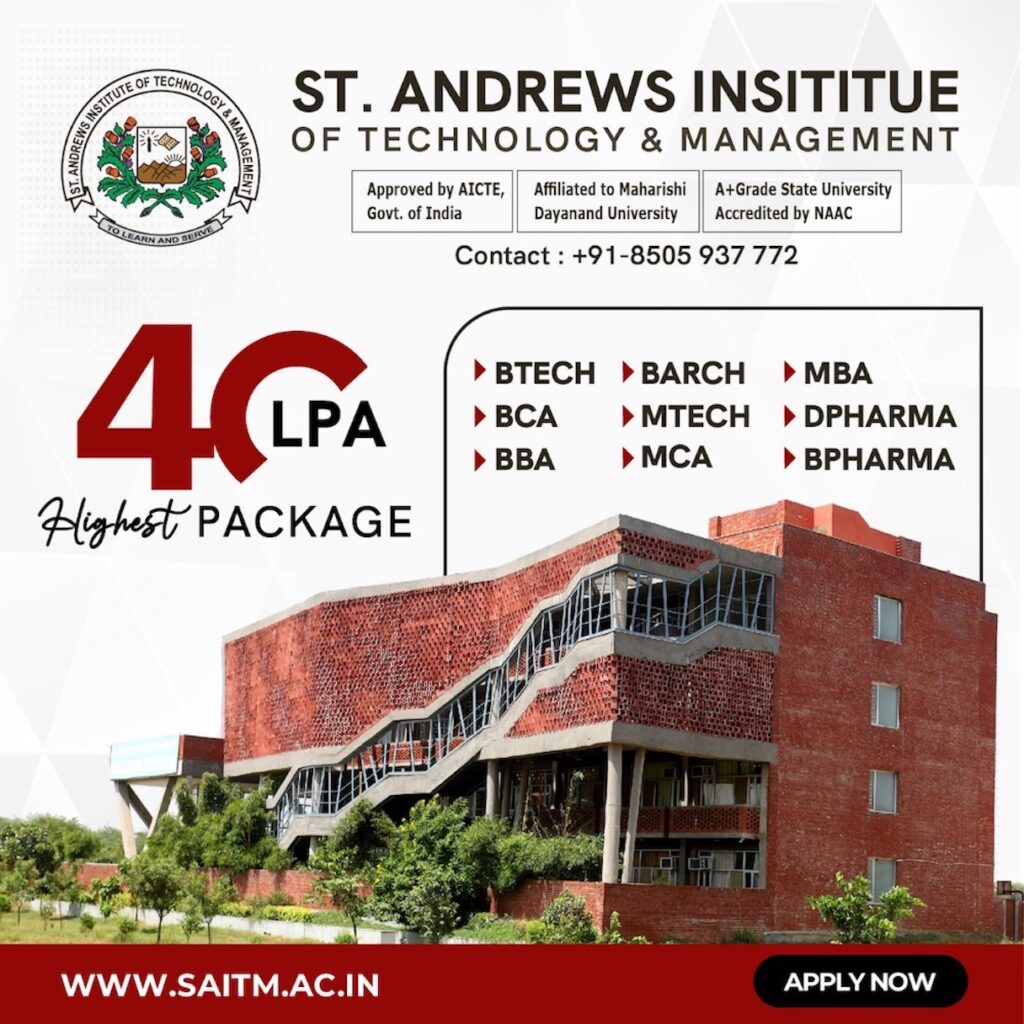
Here’s an updated list of some of the best MCA colleges in India:
St. Andrews Institute of Technology & Management (SAITM)
Location: Gurgaon, Haryana
Highlights: Known for its robust academic environment and focus on practical skills, SAITM offers a well-regarded MCA program with good infrastructure and placement opportunities.
Institute of Management Technology (IMT), Ghaziabad
Location: Ghaziabad, Uttar Pradesh
Highlights: Offers a strong MCA program with excellent industry connections and placement rates.
National Institute of Technology (NIT), Trichy
Location: Tiruchirappalli, Tamil Nadu
Highlights: Renowned for its rigorous MCA program and strong research opportunities.
Jawaharlal Nehru University (JNU)
Location: New Delhi
Highlights: Provides a comprehensive MCA program with a focus on research and development.
University of Hyderabad
Location: Hyderabad, Telangana
Highlights: Offers a robust MCA program with strong research facilities.
Banaras Hindu University (BHU)
Location: Varanasi, Uttar Pradesh
Highlights: Known for its well-regarded MCA program and strong academic connections.
Delhi University (DU)
Location: New Delhi
Highlights: Offers an MCA program through its Department of Computer Science, known for its rigorous curriculum.
Vellore Institute of Technology (VIT)
Location: Vellore, Tamil Nadu
Highlights: Features modern infrastructure and strong placement records.
Birla Institute of Technology (BIT) Mesra
Location: Ranchi, Jharkhand
Highlights: Offers a well-structured MCA program with industry-oriented skills.
Pune University (Savitribai Phule Pune University)
Location: Pune, Maharashtra
Highlights: Known for its reputable MCA program and practical skills focus.
Jamia Millia Islamia (JMI)
Location: New Delhi
Highlights: Offers a strong MCA program with a focus on research and development.
Dr. APJ Abdul Kalam Technical University (AKTU)
Location: Lucknow, Uttar Pradesh
Highlights: Known for its comprehensive MCA program and industry partnerships.
Shiv Nadar University
Location: Greater Noida, Uttar Pradesh
Highlights: Known for its research and innovation focus in computer science.
Top MCA Government Colleges in India
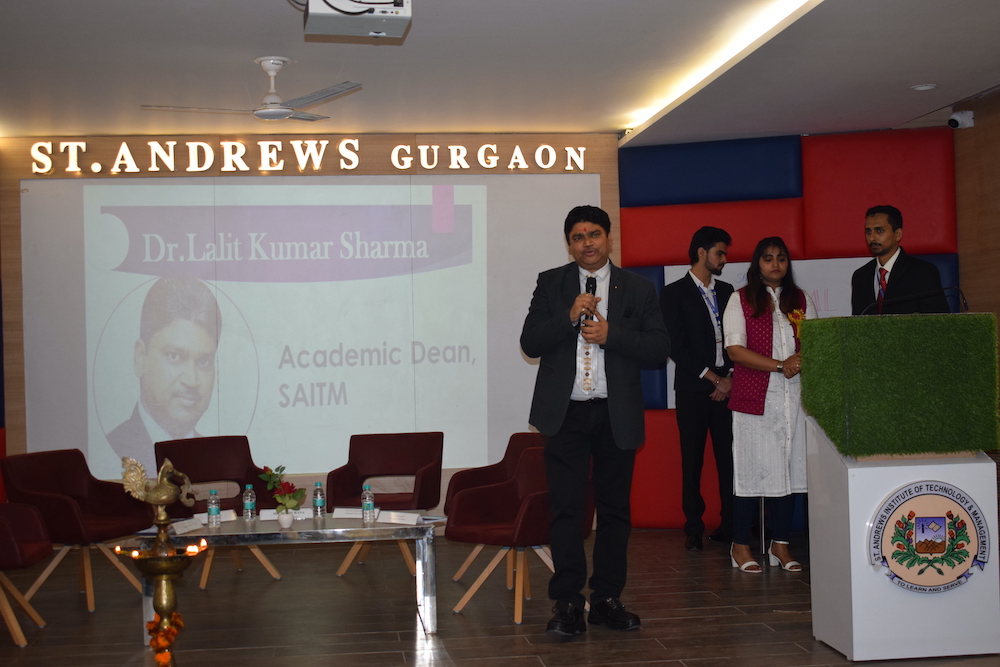
Here’s a detailed list of some of the top government MCA colleges in India:
Jawaharlal Nehru University (JNU), Delhi
Overview: Jawaharlal Nehru University is one of the most prestigious Indian universities, known for its rigorous academic programs and a strong emphasis on research.
Key Highlights
- Program: MCA
- Eligibility: Bachelor’s degree with Mathematics as a subject at 10+2 or graduation level.
- Admission: Entrance exam conducted by JNU.
- Facilities: Modern labs, libraries, and hostels.
- Placement: Excellent placement record with top IT companies.
St. Andrews Institute of Technology and Management (SAITM), Gurgaon
Overview: St. Andrews Institute of Technology and Management is a prominent institution offering various undergraduate and postgraduate programs.
Key Highlights
- Program: MCA
- Eligibility: A candidate must have a minimum of 50% marks in their graduation
- Admission: The counseling for the qualified students will begin April onwards for the session scheduled to begin in August.
- Facilities: Well-equipped labs, libraries, and student accommodations.
- Placement: Good placement record with reputable IT firms.
University of Hyderabad (UoH), Hyderabad
Overview: The University of Hyderabad is a premier institution of postgraduate teaching and research in India. It offers high-quality education and has a strong faculty base.
Key Highlights
- Program: MCA
- Eligibility: Bachelor’s degree with Mathematics as a subject.
- Admission: Based on an entrance test conducted by UoH.
- Facilities: State-of-the-art labs, libraries, and research facilities.
- Placement: Strong placement support with reputed companies visiting the campus.
Banaras Hindu University (BHU), Varanasi
Overview: BHU is one of the oldest and most renowned universities in India. It offers a wide range of courses and has a robust MCA program.
Key Highlights
- Program: MCA
- Eligibility: Bachelor’s degree with Mathematics as a subject.
- Admission: Based on BHU PET (Postgraduate Entrance Test).
- Facilities: Well-equipped labs, libraries, and hostels.
- Placement: Good placement opportunities with leading IT firms.
Motilal Nehru National Institute of Technology (MNNIT), Allahabad
Overview: MNNIT is another prestigious NIT, offering a comprehensive MCA program with a strong focus on practical and academic knowledge.
Key Highlights
- Program: MCA
- Eligibility: Bachelor’s degree with Mathematics/Statistics as a subject.
- Admission: Through the NIMCET entrance exam.
- Facilities: Modern computer labs, extensive libraries, and campus accommodation.
- Placement: Excellent placement record with top companies.
Delhi University (DU), Delhi
Overview: Delhi University is one of the most sought-after universities in India. Its MCA program is known for its quality and rigorous curriculum.
Key Highlights
- Program: MCA
- Eligibility: Bachelor’s degree with Mathematics at 10+2 or graduation level.
- Admission: Through an entrance exam conducted by DU.
- Facilities: Advanced computer labs, libraries, and various student amenities.
- Placement: Strong placement support with numerous IT companies recruiting from the campus.
Pondicherry University, Puducherry
Overview: Pondicherry University is a central university known for its excellent academic environment and robust MCA program.
Key Highlights
- Program: MCA
- Eligibility: Bachelor’s degree with Mathematics as a subject.
- Admission: Based on an entrance test conducted by the university.
- Facilities: Well-equipped computer labs, libraries, and hostels.
- Placement: Good placement opportunities with IT and software companies.
University of Pune (Savitribai Phule Pune University), Pune
Overview: Savitribai Phule Pune University is one of the premier universities in India, offering a well-regarded MCA program.
Key Highlights
- Program: MCA
- Eligibility: Bachelor’s degree with Mathematics at 10+2 or graduation level.
- Admission: Through an entrance exam conducted by the university.
- Facilities: State-of-the-art computer labs, libraries, and student accommodations.
- Placement: High placement rates with leading IT companies.
Aligarh Muslim University (AMU), Aligarh
Overview: AMU is a historic university with a strong focus on research and academic excellence. Its MCA program is well-structured and comprehensive.
Key Highlights
- Program: MCA
- Eligibility: Bachelor’s degree with Mathematics as a subject.
- Admission: Based on an entrance test conducted by AMU.
- Facilities: Modern labs, extensive libraries, and on-campus housing.
- Placement: Good placement support with reputable IT firms.
Career Scope After MCA Course
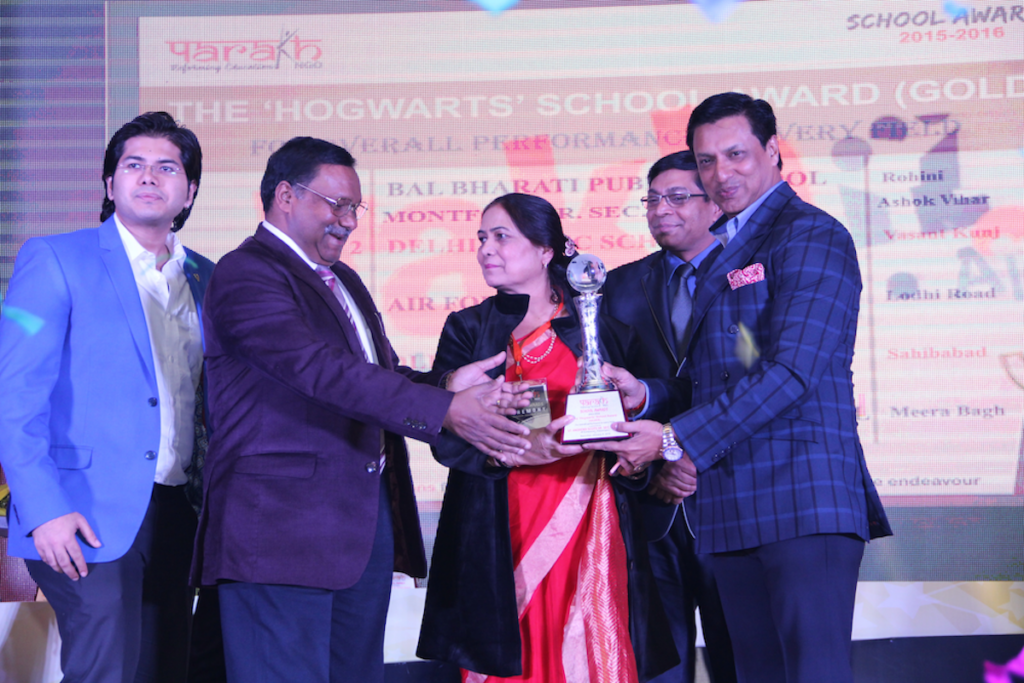
Here are some key career paths and roles that MCA graduates often pursue:
Software Developer/Engineer
- Role: Develop, test, and maintain software applications and systems.
- Responsibilities: Write code, debug issues, create software solutions, and collaborate with other developers and stakeholders to ensure software meets user needs.
- Opportunities: Work in diverse sectors including technology firms, finance, healthcare, and more.
Systems Analyst
- Role: Analyze and improve IT systems to enhance business operations.
- Responsibilities: Evaluate existing systems, gather requirements, and recommend improvements or new systems to address business challenges.
- Opportunities: Positions in consulting firms, IT departments of large organizations, and technology solutions providers.
Database Administrator (DBA)
- Role: Manage and maintain databases to ensure their performance, security, and reliability.
- Responsibilities: Install and configure databases, manage data access, perform backups, and optimize database performance.
- Opportunities: Work in various industries where data management is critical, including finance, e-commerce, and telecommunications.
Web Developer
- Role: Design and develop websites and web applications.
- Responsibilities: Create user-friendly and responsive web designs, implement functionalities using various web technologies, and ensure website performance and security.
- Opportunities: Positions in web programming agencies, tech startups, and as freelance developers. Network Engineer
- Role: Design, implement, and manage network infrastructure.
- Responsibilities: Configure network hardware, manage network performance, troubleshoot connectivity issues, and ensure network security.
- Opportunities: Roles in telecommunications companies, large enterprises, and IT service providers.
Cybersecurity Specialist
- Role: Protect systems, networks, and data from cyber threats and attacks.
- Responsibilities: Implement security measures, monitor for potential threats, respond to incidents, and stay updated on the latest security trends and technologies.
- Opportunities: Work in dedicated cybersecurity firms, IT departments, and governmental agencies.
Data Scientist/Analyst
- Role: Analyze and interpret complex data to help organizations make informed decisions.
- Responsibilities: Use statistical tools and machine learning algorithms to extract insights from data, create data visualizations, and provide recommendations based on data analysis.
- Opportunities: Roles in finance, healthcare, marketing, and technology sectors.
IT Consultant
- Role: Provide expert advice on how to use technology to meet business goals.
- Responsibilities: Assess client needs, recommend technology solutions, manage IT projects, and offer strategic advice on technology adoption.
- Opportunities: Positions in consulting firms, or as an independent consultant serving various clients.
Cloud Solutions Architect
- Role: Design and implement cloud-based solutions to improve business efficiency and scalability.
- Responsibilities: Develop cloud strategies, design cloud architectures, and oversee the migration of applications and data to cloud platforms.
- Opportunities: Work with cloud service providers like AWS, Azure, or Google Cloud, or in companies utilizing cloud technologies.
Mobile App Developer
- Role: Create applications for mobile devices.
- Responsibilities: Design, code, test, and maintain mobile applications for platforms such as Android and iOS.
- Opportunities: Positions in mobile app development companies, tech startups, or as a freelance developer.
Artificial Intelligence (AI) / Machine Learning (ML) Engineer
- Role: Develop and implement AI and ML models and solutions.
- Responsibilities: Build algorithms, train models, and deploy AI/ML solutions to solve complex problems.
- Opportunities: Work in industries such as technology, finance, healthcare, and autonomous systems.
IT Manager
- Role: Oversee IT departments or teams, managing technology infrastructure and projects.
- Responsibilities: Ensure IT systems are effective, manage IT budgets, and lead technology strategy and planning.
- Opportunities: Roles in various sectors, including large corporations, governmental organizations, and non-profits.
Academic/Researcher
- Role: Engage in teaching or research in educational institutions or research organizations.
- Responsibilities: Conduct research, publish papers, and teach courses related to computer applications and technology.
- Opportunities: Positions in universities, research labs, and academic institutions.
Entrepreneur
- Role: Start and manage your own technology-focused business or startup.
- Responsibilities: Develop business plans, secure funding, create products or services, and manage company operations.
- Opportunities: Launch startups in tech sectors such as application development, AI, cybersecurity, or digital services.
Job Profiles After MCA

Here are some job profiles after an MCA:
Software Developer
Develops software applications, with specializations in web, mobile, or enterprise software.
System Analyst
Analyzes and improves IT systems to meet user needs.
Database Administrator (DBA)
Manages and maintains databases, focusing on security, backup, and performance.
Network Administrator
Oversees and manages computer networks, handling setup, troubleshooting, and security.
IT Project Manager
Manages IT projects, including team coordination, budget management, and timeline adherence.
Business Analyst
Analyzes business processes and systems to identify and recommend improvements.
Quality Assurance (QA) Engineer
Tests software applications to ensure quality and identify bugs.
Cloud Solutions Architect
Designs and manages cloud infrastructure, ensuring scalability, security, and cost-efficiency.
Information Security Analyst
Protects IT systems and data from cyber threats, including monitoring and risk assessment.
IT Consultant
Advises on IT systems and strategies to improve technology infrastructure and operations.
Assistant Professor
Teaches and conducts research in academic institutions. Responsibilities include developing course material, delivering lectures, and guiding students.
Top Companies Hiring MCA Graduates
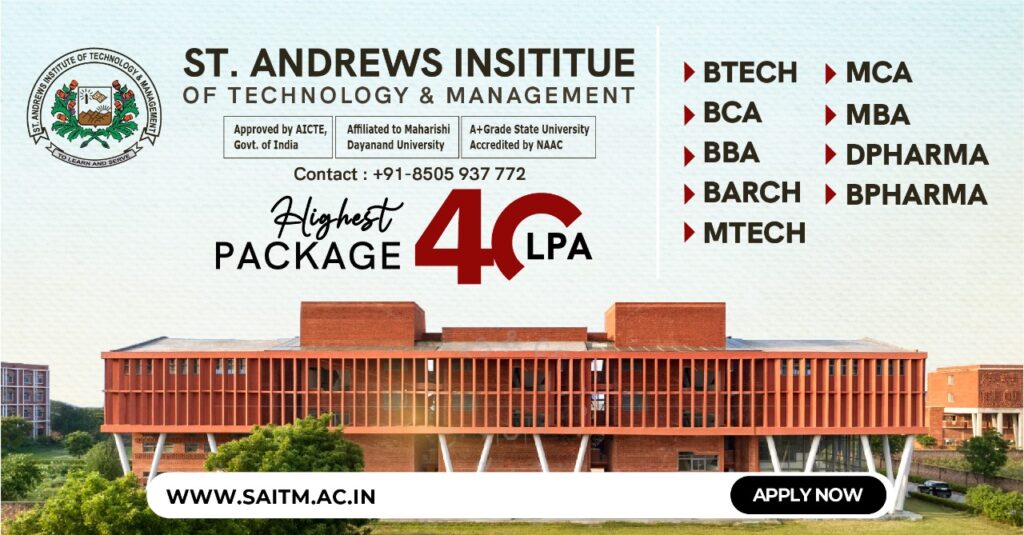
Here’s a list of some of the top companies that frequently hire MCA graduates:
Tata Consultancy Services (TCS)
- Global IT services and consulting leader.
- Diverse roles and strong training programs.
Infosys
- Leading global consulting and IT services company.
- Focus on innovation and learning.
Wipro
- Major IT services and consulting firm.
- Emphasis on digital transformation and cloud services.
HCL Technologies
- IT services company with a global presence.
- Specializes in engineering and R&D services.
Accenture
- Multinational professional services company.
- Expertise in strategy, consulting, digital, technology, and operations.
Cognizant
- IT services and consulting firm.
- Strong focus on digital and technology services.
IBM
- Global technology and consulting company.
- Known for innovation in AI, cloud Technology, and quantum computing.
Oracle
- Multinational computer technology corporation.
- Specializes in database software and cloud engineered systems.
Tech Mahindra
- IT services and consulting company.
- Focus on telecommunications and enterprise solutions.
Capgemini
- Global leader in consulting, technology, and outsourcing services.
- Strong emphasis on digital transformation.
Benefits of Pursuing MCA
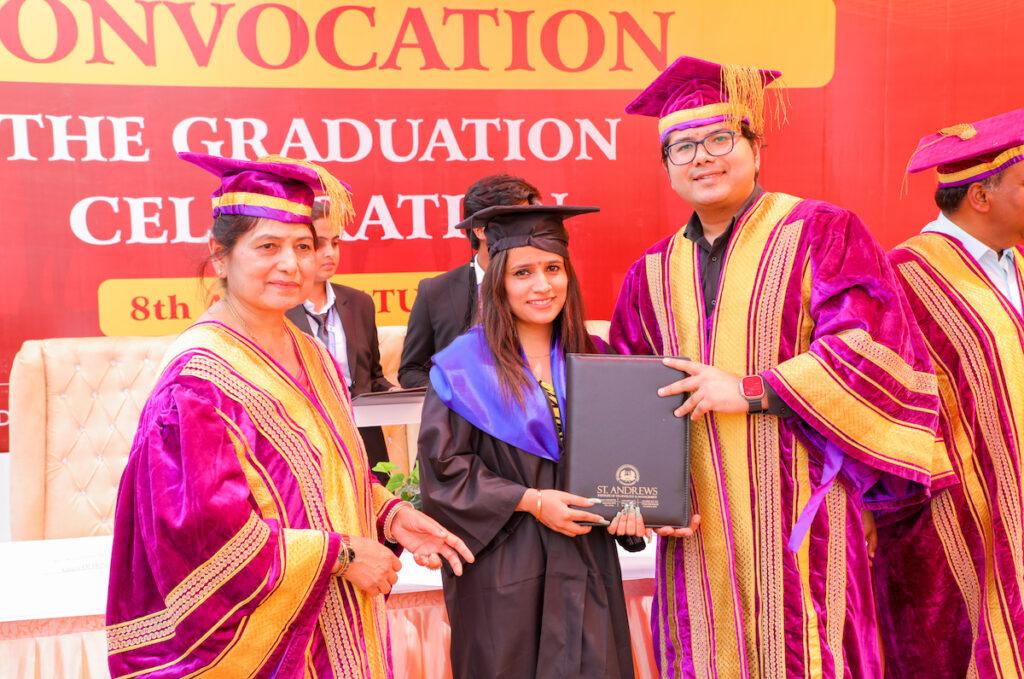
Here are some of the key advantages:
Advanced Knowledge and Skills
In-Depth Understanding: Gain a deeper understanding of computer science concepts, coding languages, and application development techniques.
Specialization: Opportunity to specialize in areas such as Data Analytics, Cybersecurity, Cloud Technology, AI, or Web Programming, enhancing expertise in a specific field.
Career Opportunities
Diverse Roles: Opens up a range of career opportunities in application development, IT consulting, network management, data analysis, and more.
Higher Positions: Prepares you for advanced roles such as Software Engineer, System Analyst, Database Administrator, and IT Project Manager.
Increased Earning Potential
Higher Salary: Graduates with an MCA degree often command higher salaries compared to those with just a bachelor’s degree in computer applications or related fields.
Career Growth: The advanced skills acquired can lead to better job prospects and career advancement opportunities.
Industry Demand
Growing Field: The IT and software industry is growing rapidly, leading to high demand for skilled professionals with advanced qualifications.
Technological Advancements: As technology continues to evolve, MCA graduates are well-positioned to work with emerging technologies and innovations.
Research and Development
Research Opportunities: Provides a strong foundation for pursuing research roles or advanced studies (such as a Ph.D.) in computer science and related fields.
Innovation: Opportunities to work on cutting-edge technologies and contribute to technological advancements.
Practical Experience;
Projects and Internships: Hands-on experience through projects, internships, and industry collaborations enhances practical skills and real-world understanding.
Problem-Solving: Develops strong problem-solving abilities and technical proficiency.
Networking and Professional Growth
Industry Connections: Opportunities to connect with industry professionals, attend seminars, workshops, and conferences.
Professional Development: Access to industry insights, trends, and practices that can aid in career development.
Flexibility and Versatility
Wide Application: Skills gained can be applied in various sectors including finance, healthcare, education, and entertainment.
Adaptability: Knowledge of multiple programming languages, tools, and technologies allows for adaptability in different roles and industries.
Entrepreneurial Opportunities
Startups: Equips you with the skills needed to start your own technology-based venture or consultancy.
Innovation: Provides the technical expertise required to develop and launch new products or services.
Personal Development
Problem-Solving Skills: Enhances analytical and critical thinking skills, which are valuable both professionally and personally.
Project Management: Develops skills in managing and leading projects, which can be beneficial in various aspects of life.
Salary After MCA Course
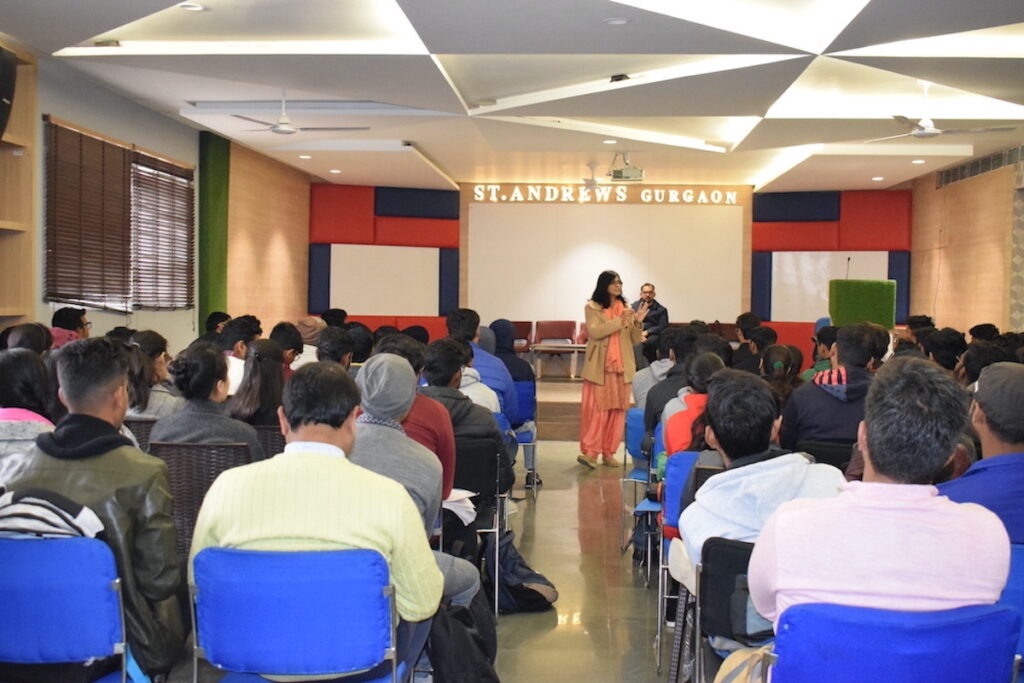
Here’s a general overview of expected salary ranges for MCA graduates in India:
Entry-Level Positions
Job Titles: Software Developer, System Analyst, Web Developer, Technical Support Engineer.
Average Salary: INR 3-6 lakhs per annum.
Details
College Reputation: Graduates from prestigious institutions often receive higher starting salaries due to the perceived quality of education and rigorous selection processes.
Internships and Projects: Practical experience gained through internships or projects during the MCA program can significantly boost employability and starting salaries.
Technical Skills: Proficiency in programming languages (e.g., Java, Python, C++), data management (SQL, NoSQL), and web technologies (HTML, CSS, JavaScript) is crucial.
Certifications: Relevant certifications in areas such as cloud Technology(AWS, Azure), cybersecurity, and data analytics can enhance job prospects and initial salary packages.
Location: Jobs in metropolitan cities like Bangalore, Mumbai, Delhi, and Hyderabad typically offer higher salaries due to the high cost of living and demand for skilled professionals.
Mid-Level Positions
Job Titles: Senior Software Developer, Project Lead, Database Administrator, IT Analyst.
Average Salary: INR 6-12 lakhs per annum.
Details
Work Experience: 3-7 years of experience is usually required to transition into mid-level roles. During this time, professionals are expected to take on more responsibilities and demonstrate their expertise.
Specialized Skills: Knowledge in advanced areas such as machine learning, ai, big data analytics, and cybersecurity can lead to better job roles and higher salaries.
Performance and Contributions: Demonstrating significant contributions to projects and the ability to manage small teams can lead to promotions and salary increments.
Industry Demand: Industries like e-commerce, fintech, and IT services often have a higher demand for experienced MCA graduates, influencing salary packages.
Senior-Level Positions
Job Titles: Project Manager, IT Manager, Senior System Analyst, Technical Architect.
Average Salary: INR 12-20+ lakhs per annum.
Details
Extensive Experience: Typically, 7+ years of experience is required for senior-level positions. Professionals at this level are expected to have a deep understanding of their field and strong leadership skills.
Leadership Skills: Ability to manage large projects, lead teams, and make strategic decisions is crucial.
Advanced Technical Expertise: Senior roles often require specialized knowledge in areas like cloud architecture, enterprise solutions, and advanced programming.
Strategic Role: Involvement in strategic planning, decision-making, and aligning IT goals with business objectives contributes to higher salaries.
Specialized Roles
Job Titles: Data Scientist, AI/ML Engineer, Cybersecurity Expert, Cloud Architect.
Average Salary: INR 8-20+ lakhs per annum.
Details
High-Demand Skills: Specialized roles require proficiency in niche areas that are in high demand, such as data analytics, ai, machine learning, and cloud technology.
Advanced Certifications: Certifications from recognized institutions (e.g., AWS Certified Solutions Architect, Certified Information Systems Security Professional) can significantly enhance salary prospects.
Industry Trends: Keeping up with the latest industry trends and technologies is essential for maintaining a competitive edge in specialized roles.
Reason to Choose MCA
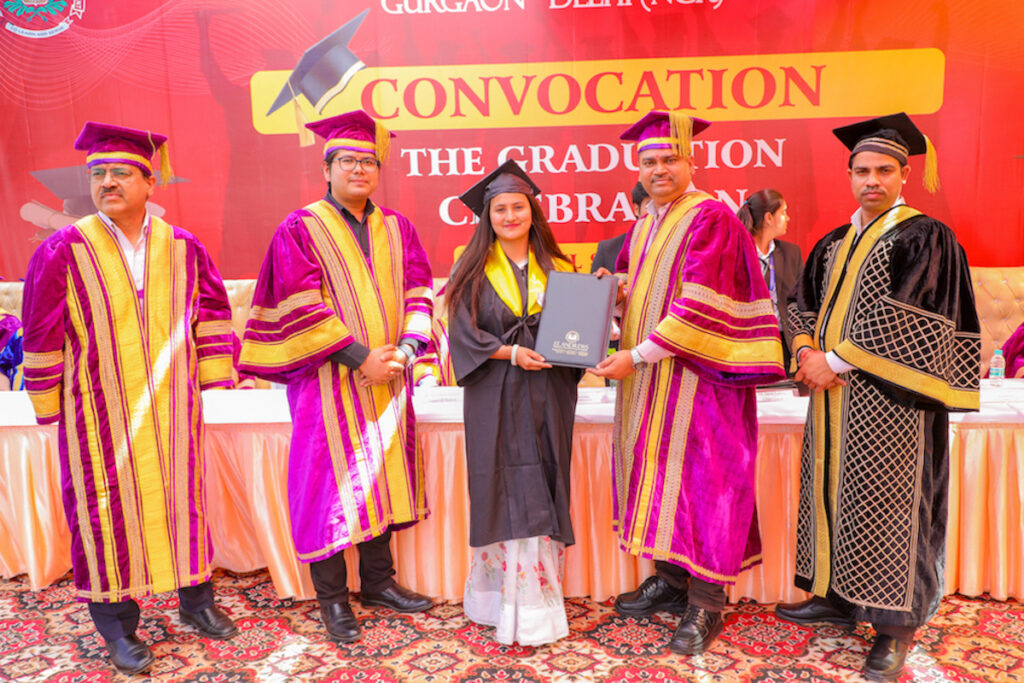
Here are some compelling reasons to consider:
Specialized Knowledge
An MCA provides advanced knowledge in computer applications, programming, application development, and IT management. This specialized knowledge can lead to expertise in fields like programming engineering, data management, and systems analysis.
Career Opportunities
MCA graduates are in high demand for various roles such as software developers, systems analysts, IT consultants, and project managers. The degree opens doors to opportunities in both the private and public sectors.
Higher Earning Potential
An MCA can lead to higher-paying job opportunities compared to a bachelor’s degree in computer applications or other related fields. Advanced technical skills and specialized knowledge often result in better salary packages.
Professional Growth
The degree equips you with the skills needed to take on higher-level responsibilities and leadership roles in the IT industry. It can also prepare you for entrepreneurial ventures or starting your own IT-related business.
Research Opportunities
If you’re interested in pursuing research, an MCA can be a stepping stone to higher studies such as a Ph.D. or research positions in academia or industry.
Industry-Relevant Skills
MCA programs often include practical training, internships, and projects that align with current industry standards and technologies, making graduates more competitive in the job market.
Flexibility
Many MCA programs offer flexible learning options, including part-time and distance learning, allowing you to balance studies with work or other commitments.
Diverse Specializations
MCA programs often offer specializations in areas such as cloud technology, ai, cybersecurity, and data analytics, allowing you to tailor your education to your career interests.
Required Skillset for MCA

Here are some essential skills for MCA students:
Technical Skills
Programming Languages
Proficiency in languages such as Java, C++, Python, and others.
Web Development
Knowledge of HTML, CSS, JavaScript, and frameworks like AngularJS, React, or Vue.js.
Database Management
Understanding of SQL and data management systems like MySQL, Oracle, and MongoDB.
Software Development
Familiarity with application development life cycle (SDLC), agile methodologies, and version control systems like Git.
Operating Systems
Knowledge of various operating systems, including Windows, Linux, and macOS.
Networking
Basic understanding of computer networks, protocols, and security.
Analytical and Problem-Solving Skills
Logical Thinking
Ability to approach problems methodically and logically.
Data Analysis
Skills in analyzing and interpreting data to make informed decisions.
Algorithm Development
Competence in designing and implementing algorithms to solve complex problems.
Soft Skills
Communication
Strong written and verbal communication skills to effectively convey ideas and collaborate with team members.
Teamwork
Ability to work well in a team environment, as many projects will require collaboration.
Time Management
Effective management of time to handle multiple tasks and meet deadlines.
Adaptability
Willingness to learn and adapt to new technologies and methodologies.
Project Management Skills
Planning and Organization
Ability to plan, organize, and manage projects efficiently.
Leadership
Leading teams and projects, taking initiative, and motivating others.
Domain-Specific Knowledge
Cybersecurity
Understanding of security principles and practices to protect data and systems.
Artificial Intelligence and Machine Learning
Knowledge of AI/ML concepts and tools.
Cloud Computing
Familiarity with cloud platforms like AWS, Azure, or Google Cloud.
Practical Experience :
Internships and Projects
Hands-on experience through internships and academic projects.
Certifications
Relevant certifications can enhance your resume and demonstrate expertise in specific areas.
Research and Innovation
Critical Thinking
Evaluating information critically and thinking creatively to solve problems.
Continuous Learning
Keeping up with the latest trends and advancements in technology.
Mathematical Skills
Discrete Mathematics
Understanding of mathematical concepts that are foundational to computer science.
Statistics
Basic knowledge of statistics for data analysis and machine learning applications.
Future Trends in MCA Education

The future trends in Master of Computer Applications (MCA) education are likely to be shaped by advances in technology and evolving industry demands.
Here are some key trends that could influence MCA programs in the coming years:
Increased Focus on Specializations
MCA courses might start offering more specialized tracks in fields such as AI, Machine Learning, Data Analytics, Blockchain, and Cybersecurity. This specialization will enable students to meet the specific demands of various industries and prepare them for niche roles.
Integration of Emerging Technologies
As new technologies continue to emerge, MCA programs will likely integrate these into their curriculum. This could include areas like quantum computing, Internet of Things (IoT), and augmented reality/virtual reality (AR/VR), preparing students for the cutting edge of computer applications.
Blended Learning Models
The trend towards hybrid learning models, which mix online and face-to-face instruction, is expected to grow. This approach not only makes learning more flexible and accessible but also prepares students for remote and distributed work environments, which are becoming more common.
Industry-Academia Collaboration
There will likely be an increase in partnerships between educational institutions and tech companies. These collaborations can help in updating curricula to include current technologies and practices, provide students with real-world experience through internships, and enhance job readiness.
Focus on Soft Skills and Interdisciplinary Learning
MCA programs may emphasize the development of soft skills like communication, teamwork, and problem-solving, integrated with technical learning. There may also be a push towards interdisciplinary learning, where students can take courses in fields like business management, healthcare, or environmental science, applying IT skills in these diverse areas.
Project-Based Learning and Real-World Applications
To enhance practical knowledge, MCA programs might incorporate more project-based learning strategies where students work on real-world problems, possibly in collaboration with industry partners. This hands-on approach can significantly improve problem-solving skills and innovation.
Global and Ethical Perspectives
As technology impacts every corner of the globe, there is a growing need for computer professionals who understand global tech issues, such as data privacy, ethical hacking, and software compliance standards. Programs might include more content on global IT practices and ethics.
MCA vs. Other Computer Science Degrees

Here’s a concise comparison of MCA (Master of Computer Applications) with other computer science degrees: BCA (Bachelor of Computer Applications), B.Tech (Bachelor of Technology in Computer Science), and M.Tech (Master of Technology in Computer Science):
BCA (Bachelor of Computer Applications)
- Duration: 3 years
- Level: Undergraduate
- Focus: Basic knowledge of computer applications and application development.
- Eligibility: 10+2 with Mathematics (varies by institution).
- Career Prospects: Entry-level positions in IT companies, software developer, web developer, system analyst.
B.Tech (Bachelor of Technology in Computer Science Engineering)
- Duration: 4 years
- Level: Undergraduate
- Focus: In-depth technical knowledge of computer science, including hardware and software, programming, algorithms, and system design.
- Eligibility: 10+2 with PCM (Physics, Chemistry, Mathematics).
- Career Prospects: Software engineer, systems engineer, network engineer, data analyst, roles in research and development.
MCA (Master of Computer Applications)
- Duration: 2-3 years (depending on the institution and course structure)
- Level: Postgraduate
- Focus: Advanced knowledge of computer applications, application development, systems management, and IT.
- Eligibility: Bachelor’s degree (BCA preferred or other degrees with Mathematics as a subject).
- Career Prospects: Senior software developer, project manager, IT consultant, system architect, database administrator.
M.Tech (Master of Technology in Computer Science)
- Duration: 2 years
- Level: Postgraduate
- Focus: Specialized and advanced topics in computer science and engineering, research-oriented.
- Eligibility: B.Tech/B.E. in relevant field, GATE score (Graduate Aptitude Test in Engineering).
- Career Prospects: Research and development, academic positions, senior roles in application development, data scientist, AI specialist, IT consultant.
Comparison Summary:
- BCA is ideal for those looking to start their career in IT early and focus primarily on applications and software.
- B.Tech offers a broader and deeper understanding of both hardware and software, preparing students for a wide range of roles in technology and engineering.
- MCA provides advanced education in computer applications, suitable for those who want to specialize further after a BCA or switch fields with a strong focus on IT and application development.
- M.Tech is research-oriented, focusing on advanced technical knowledge and innovation in computer science, suitable for those looking to go into specialized technical roles or academia.
FAQs
What is the course of MCA?
The Master of Computer Applications (MCA) is a postgraduate equivalent degree focusing on computer science, programming, and applications. Typically spanning three years, the curriculum includes software development, data management, computer networks, web technologies, and cybersecurity.
The course combines academic knowledge and practical skills, preparing students for roles in programming engineering, systems management, and IT consulting. It also emphasizes project work and internships, providing industry exposure.
Graduates are equipped to pursue careers in various IT fields, including software development, system analysis, and project management.
What are the career prospects for online MCA graduates?
Online MCA (Master of Computer Application) graduates have strong career prospects in the IT industry, similar to those of traditional MCA graduates. They can pursue roles such as software developers, web developers, system analysts, database administrators, network engineers, and IT consultants.
The increasing acceptance of online degree programs, especially from accredited and reputable institutions, ensures that graduates can compete effectively in the job market.
Additionally, online MCA programme often offer flexibility, allowing students to gain work experience simultaneously, which can enhance their employability. Graduates can also explore opportunities in emerging fields like data analytics, ai, and cybersecurity.
Is MCA 2 years course or 3 years?
The duration of the Master of Computer Applications (MCA) course varies by country and institution. In India, the MCA course is typically two years for students who have a Bachelor’s degree in Computer Applications (BCA) or a related field. For students from non-computer science backgrounds, it may be three years.
The curriculum covers software development, data management, networking, web technologies, and cybersecurity. It combines theoretical knowledge with practical skills through projects and internships, preparing graduates for roles in software engineering, system analysis, IT consulting, and project management.
Which MCA course is best?
The best MCA course often depends on individual career goals and interests. However, MCA programs with specializations in fields like Data Analytics, AI, Cybersecurity, and Cloud Computing are highly sought after due to industry demand.
Top institutions offering MCA courses with strong faculty, modern infrastructure, and robust placement opportunities are ideal choices.
For instance, MCA programs at institutions like the National Institutes of Technology (NITs), Indian Institutes of Technology (IITs), and top private universities such as Symbiosis and Christ University are well-regarded. These programs offer a blend of theoretical knowledge and practical skills, preparing students for advanced roles in the tech industry.
Can I join MCA after 12th?
You cannot join a Master of Computer Applications (MCA) program directly after completing the 12th grade. MCA course is a postgraduate course, and the primary eligibility requirement is to have a bachelor’s degree.
Typically, students pursue a Bachelor’s degree in Computer Applications (BCA), Computer Science, or a related field before enrolling in an MCA course.
Additionally, many institutions require candidates to have studied mathematics at the 10+2 level or during their undergraduate studies. After completing your bachelor’s degree, you can apply for MCA programs by taking entrance exams and meeting any additional eligibility criteria set by the institutions for the upcoming academic year.
What is online MCA Program?
An online MCA (Master of Computer Applications) program is a flexible, postgraduate course in computer applications delivered via digital platforms. It offers:
- Accessibility: Study from any location, ideal for working professionals and remote learners.
- Flexibility: Access lectures and materials anytime, balancing education with other commitments.
- Comprehensive Curriculum: Covers software development, programming, database management, and more.
- Interactive Learning: Includes virtual classes, forums, and webinars for peer and faculty interaction.
- Cost-Effective: Typically more affordable than traditional programs.
- Accreditation: Ensure the program is recognized by a credible educational body.
- Career Prospects: Graduates can pursue roles like software developer, IT consultant, and system analyst.

